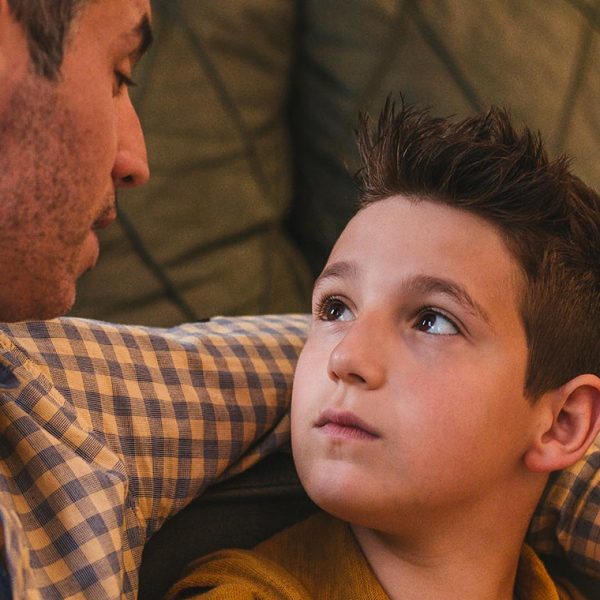It is often difficult for children to express themselves. How can you help them to tell you about their day? Here are eight great tips that you will love!

8 Tips for Helping Your Child to Tell You About Their Day
Your little one has gotten just gotten home from a big day at daycare or school. It is such a natural thing for a parent to want to know how their day was. However, all attempts to find out usually result in a quick and simple, “Good.”, and nothing more. So, how can you draw your children out with this question and actually get a glimpse into their day? Here are eight practical suggestions to do just that.
Be Mindful of Your Childs Limitations
Young children are not as likely to observe or analyze every part of their day, and their memory won’t always retain it all as an adult’s would. It’s often a challenge just for them to remember details or the sequence of that day’s events. Be mindful and considerate, remembering that they are just children, don’t expect to have a full discussion as you would with an older child or an adult. Remember too that while you may know a kid or two that have mastered the art of conversation, most kids are just happy to have gotten through the day having learned a thing or two and kept a smile on their face – and isn’t that enough?
Give Your Child Enough Time to Unwind
No one enjoys a wave of questioning the minute you get home from work – or school. Your immediate arrival home after a long day requires a little bit of a breather. Time to unwind and transition from work or school mode, to home and family mode. This is especially true for children. Rather than hop to the “How was your day?” And “What did you learn” interrogation, allow them a little space. Greet them, give them a snack and some playtime outdoors. They will be much more receptive to a chat when they have decompressed from their day.
Ask Specific Questions
Be precise in the questions you ask your child. Rather than ask them a general question like, “How was your day?”, as them more specific questions. For example, “What made you laugh today?”, “Did anyone help you do something today” and, “Who do you play most with at school?”.
Give each child their time to talk about their day
Make it a tradition. Set a time where each member of the family, including yourself, talks about their day. Not only will this relieve some of the pressure your child might feel, they will naturally join in the conversation as they observe everyone else sharing.
Create a positive atmosphere focused on listening
It is so important that your child feels comfortable and confident to express themselves. These moments of interchange and discussion should always be a positive and pleasant experience. Do your utmost to put away the electronics, including your phone, turning off the tv and truly focusing on your child and what they have to say. Your child needs to know that what they have to say and the events of their every day is of value to you. Pay attention, ask follow-up questions. Your child will love knowing that you are truly interested.
Speak to the adult that spends the most time with your child
Whenever possible and convenient, take a few minutes to speak with the caregiver or teacher that spends most of the day with your child. They can tell you about their day in greater detail and relate their overall mood, successes and struggles. This will also provide you opportunity to initiate relevant discussions with your child.
Use multiple choice questions
If your child is three or under, give them multiple choice questions. For example, you can ask your young child, “Dod you play with Kira or Miguel today?”, or, “Did you play ball or hide-and-seek at recess today?”.
Learn through play
To help your child develop their conversation skills, show them how to learn through play. For example, use their favourite dolls or figurines as surrogates for the conversation. Children who struggle with speaking or expressing themselves can even answer through action, rather than with words.
You can also try reading a book and commenting on the characters, their actions, and the sequence of those actions. Reading to your child is also the best way for your child to develop a deep love of reading. For more information on developing a love of reading in your child, click here.
Be patient with your child and never give up
It’s totally possible that your child does not have a natural desire or ability for conversation. While you don’t need to force them to do so, it is very important to offer help in small increments, in order for them to continue developing their abilities and reach their potential. Be patient. Offer reminders of the chats you had the previous day, give them a resumé of your day or ask some unique questions that you know your child will respond to.
Maybe your child simply refuses to talk about their day. This is also normal and even something we as adults experience. Do you ever find yourself exhausted and your senses overloaded at the end of the day? This is no different for our children. Don’t worry too much about it and don’t hesitate to drop it and try again when the mood is more positive or even the next day. Your child will truly appreciate your patience and understanding, knowing that you respect them as individuals. This will encourage your child to speak more freely and they will most likely be excited to tell you everything that happened – and meant something to them personally – that day.






